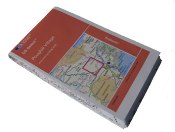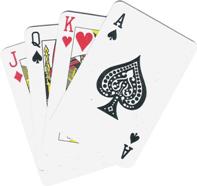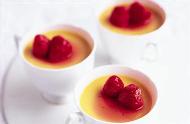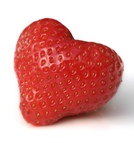Карта

I remember back in the old days, the 90s, everyone I knew had at least one карта in the glove-box. This means map in Russian. And I don't know anyone who carries a paper version these days.
| Sg | Pl | |
| Nom | карта | карты |
| Acc | карту | карты |
| Gen | карты | карт |
| Pre | карте | картах |
| Dat | карте | картам |
| Ins | картой | картами |
Мне нужна карта Сан-Диего.
I need a map of San Diego.
Катя, возьми карту метро, чтобы не заблудиться.
Katya, take a subway map so you don't get lost.
The second translation of карта is card. What kind of card? Well, that depends on the adjective preceding it.
Звуковая карта- Sound card
Кредитная карта- Credit card
Дебетовая карта- Debit card

Банк одобрил мою кредитную карту.
The bank approved my credit card.
Давайте играть в карты.
Let's play cards.
This last sentence demonstrates a way to use the plural, Карты. This could mean, many maps, but with the verb играть “to play” it commonly refers to playing cards.

Шкаф
Now here is word that is interesting. It describes a piece of furniture standing in a room that hold either books or clothes or something else. It usually has doors on it. It declines like this:
| Sg | Pl | |
| Nom | шкаф | шкафы |
| Acc | ||
| Gen | шкафa | шкафов |
| Pre | шкафе | шкафах |
| Dat | шкафу | шкафам |
| Ins | шкафом | шкафами |
Actually, that's not the entire declension. Шкаф is one of those words that distinguish the locative case singular from the prepositional singular. In other words, if you are saying in/on the piece of furniture, the form of the word after the prepositions в/на is шкафу.
For us Americans this seems an odd piece of furniture. After all, if you are hanging up clothes, you use a closet. If you are laying them in a piece of furniture, then you use a chest of drawers. If you are putting books somewhere, then it is a bookshelf. Why do the Russians use a different piece of furniture? I suspect it has something to do with old European taxation schemes. If you make a separate tiny room to hang clothes in (a closet), that room counts as a separate room for taxation purposes. So if you want to hang your clothes in Europe, then the most cost effective way is to buy a flat and then add a piece of furniture to it for that purpose. In British English I'm guessing the best word for such a piece of furniture is ‘wardrobe,’ which is neatly reflected in one of the translations of C. S. Lewis's well-known book “The Lion, the Witch, and the Wardrobe,” which came out in Wikipedia's Russian translation as «Лев, колдунья и платяной шкаф». Probably the best word for such a piece of furniture in current AmE is ‘armoire.’
Here are some sample sentences:
| Положи бельё в шкаф. | Put the underwear in the armoire. |
| Все мои словари находятся в книжном шкафу. | All my dictionaries are in the book shelf. |
| Возьми чашки из шкафа. | Get the cups from the cupboard. |
| Мои деньги спрятаны в книжном шкафу за бюстом Ленина. | My money is hidden in the bookshelf behind the bust of Lenin. |
Клубника

My favorite fruit is the strawberry- клубника. When I was a very young girl in Russia, we had a neighbor who used to grow them in her yard. So my love of the red berry developed early. I will admit to being picky and preferring things with real strawberries over anything that is strawberry-(shudder)flavored.
Я обожаю клубнику.
I adore strawberries.
Notice in that sentence I am using the accusative singular to mean "strawberries." In most situations, people will assume you are speaking of more than one strawberry. The way in America when one says “strawberry pancakes,” we can be pretty sure it is not pancakes with a single berry on top. The most common words for most other berries work the same way; that is, the singular form means “berries en masse”:
У меня так много клубники, что нет места в холодильнике.
I have so many strawberries, that there is no room left in the refrigerator.
I am also quite convinced that any dessert is improved by adding strawberries to it. For example, Crème Brule with a fresh strawberry on top is heaven.
Крем-брюле лучше с клубникой.
Crème Brule is better with strawberry.

And there is nothing in the world like a fresh strawberry dipped in some high-quality dark chocolate. Yum!
Я не могу жить без клубники.
I can't live without strawberries.
| Sg | |
| Nom | клубника |
| Acc | клубнику |
| Gen | клубники |
| Pre | клубнике |
| Dat | клубнике |
| Ins | клубникой |

Don comments: As mentioned above, most berry words in Russian are singular words that encompass quantities of the berries; i.e., they are singularia tantum like the word ‘money.’ Such words induce singular verb and adjectival agreement, and they generally cannot be used with cardinal numbers. In other words, just as in English you cannot say “one money” or “two moneys,” so in Russian you are not supposed to say «одна клубника» or «две клубники» in the sense of “one strawberry” or “two strawberries.” (Some people still do say it, though.)
Amazingly enough, conversational Russian has a couple of other words that mean “a single berry of the type клубника,” and they are клубничка and клубничина. Thus one can say одна клубничина, две клубничины, одна клубничка, две клубнички.
Весь
The Russian word весь can be translated as ‘all,’ “the whole” or “the entire.” It declines like this:
| Masc | Neut | Fem | Pl | |
| Nom | весь | всё | вся | все |
| Acc | * | всю | * | |
| Gen | всего | всeй | всех | |
| Pre | всём | |||
| Dat | всему | всемм | ||
| Ins | всем | всеми | ||
One of the most common uses of this word is with the four times of day. When it is used with them, the time phrase is in the accusative case:
| Я всё утро старался выяснить, почему нам не заплатили. | All morning I was trying to figure out why we hadn't been paid. |
| Мама весь день была на работе. | Mom was at work all day. |
| Весь вечер мы смотрели итальянские фильмы. | We watched Italian movies for the entire evening. |
| Папа всю ночь не спал. | Dad didn't sleep all night long. |
Of course the word can also be used with things that aren't time phrases:
| По всему полю были заложены мины. | The entire fiеld was covered with landmines. |
| Она прочитала всю статью за два часа. | She read the whole article in two hours. |
| Весь мир знает, что Советский Союз защищает права трудящихся всех стран. | The entire world knows that the Soviet Union defends the rights of workers of all countries. |
А
Back in the seventies American television had a little spasm in which it thought that blurbs between TV shows on Saturday mornings should be educational. There was “Bicentennial Rock” as 1976 approached, and there was “Multiplication Rock” and even “Grammar Rock.” Grammar Rock rocked! And of all the songs none was better than “Conjunction Junction”:
♪ Conjunction Junction, what's your function? ♫
♫ “Hookin' up words and phrases and clauses.” ♪
Of course, that was before “hooking up” acquired a different meaning... If you haven't ever watched the video, do it immediately or end up a grammatical imbecile.
In Russian there are three conjunctions that give us Americans fits, and they are но, а and и. The reason they give us fits is that in American English we mostly use two conjunctions in their stead, ‘and’ and ‘but,’ but they don't line up quite the way we Americans might expect. Today we will talk about «а». The conjuction «а» can be translated as ‘but,’ ‘and’ or ‘whereas.’ Probably the first rule of thumb for us AmE-speаkers is that if you are contrasting subjects in a sentence, you want to use «а» not «и»:
| Мама пошла на рынок, а папа пошёл в аптеку. | Mom went to the market, and Dad went to the pharmacy. |
| Мой брат работает в больнице, а моя сестра работает в бизнесе. | My brother works at a hospital, and my sister works in a business. |
| Саша любит сладкое, а Дима любит острое. | Sasha likes sweet food, and Dima likes spicy food. |
| В отпуск Люба летала на Гавайи, а Ира ездила в Норильск. | Lyuba flew to Hawaii for vacation, and Ira went to Norilsk. |
I don't mean to say that the only time you use «а» is when subjects are contrasted, but this is a good idea to start with.
<< 1 ... 38 39 40 ...41 ...42 43 44 ...45 ...46 47 48 ... 158 >>